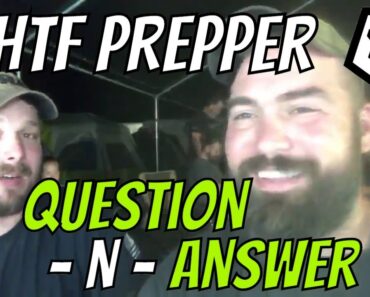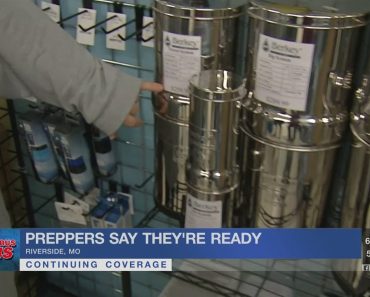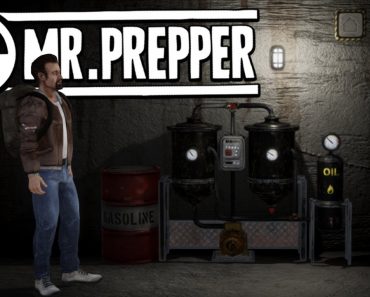Going off-grid can be an incredibly rewarding experience. As you distance yourself from the rest of society, you’ll get to make your own rules, raise your kids how you want and gain a new appreciation for nature.
But with more freedom comes great responsibility, and you’ll soon realize how challenging off-gridding can be. Growing your food, raising and butchering livestock, and generating green power takes a lot of work, and you’re only one person. So, whether you take your whole family homesteading or plan to go solo, you could use another pair of helping hands — or paws.
That’s right. Dogs are good for more than just companionship. Most were first bred to serve a distinct purpose, whether hunting, guarding, or herding. Regardless of what kind of help you need, there’s likely a puppy out there suited for the task.
Protection
Many breeds like the german shepherd and bullmastiff. They are incredibly loyal dogs. They would do anything to protect their owner, making them excellent guard dogs for a homestead or survival shelter. Great Danes and Rottweilers are equally protective and have a bark that’s almost as scary as their bite. Who needs an alarm system when your dog can scare off anyone within a 20-yard radius?
Luckily, these breeds are just as obedient as they are protective, so they’ll follow whatever commands you teach them. However, they must undergo intense protection training to learn such orders and successfully differentiate between friend and foe. Sure, they might be instinctually inclined to safeguarding you and your family, but they can just as easily mistake one of you for a threat if it’s dark out or you look unfamiliar.
Tracking
If you think you have a good nose, try out-sniffing, a bloodhound. This breed has 80 million more olfactory sensors than humans and can stick to a single scent trail for more than 130 miles. Thus, bloodhounds make excellent trackers that can hunt down everything from small animals to humans.
Basset hounds, beagles, saint bernards, and Belgian malinois also have a superior sense of smell. These canines often serve as search and rescue dogs in natural disasters and emergencies. So, if you’re living in an off-grid wilderness, having one around is a wise move.
Hunting
Most dogs have the speed and agility to catch a rabbit or squirrel. However, if you plan on catching larger game, you’ll need a dog that was born to hunt. Beagles, foxhounds, pointers, and springer spaniels are just a few different breeds that produce excellent hunters. These dogs are quick on their feet and have a keen sense of smell, so they can quickly detect and catch prey.
Super smellers like coonhounds and retrievers can also track, hunt, and catch mid-size game like fox and turkey. However, their hind legs may grow weaker as they age, in which case they’ll be more suited for light work like retrieving ducks and other small animals. These skills may require additional training, but instinct will minimize the learning curve, so they catch on quicker.
Pest Control
Keeping chickens can minimize pests in and around your property because they like to feast on insects. Cats and raptors can also keep mice at bay. However, if your pest problems involve larger vermin like rats and raccoons, you’d be better off with a dog.
Got rats? Adopt a terrier or dachshund. Because their bodies are lower to the ground, they’re more adept at catching small rodents. Is a fox eyeing your chickens? A german pinscher might be more suited to scaring away or chasing down this larger predator. Let these dogs roam your property and sleep outside with the livestock whenever the weather permits. This way, they can catch predators in the act and scare away any potential threats.
Livestock Guarding
When your livestock is grazing, they’re more exposed to predators, even if you have a fence. After all, a 3-foot-tall barrier can only do so much to stop a hungry wolf or cougar. In this case, you need a guard dog that will protect your herd.
German shepherds, Anatolian shepherds, Akbash, and the Great Pyrenees will dutifully fulfill and enjoy this role. However, unlike most other breeds, these are actual work animals that cannot double as a family pet. Instead, they must bond with the herd at an early age and remain with them at all times, especially when they’re out to pasture. Only then will they learn to blend in and watch for intruders within the flock.
Herding
Of course, some guard dogs can also learn to herd livestock. Instead of blending in, they hang out on the fringes and control the herd’s movements. However, many breeds have a historically strong instinct for this task and can learn and respond to hundreds of different commands. Others can recognize a variety of whistles and hand signals.
Border collies, Australian shepherds, and welsh corgis are just a few of the most popular herders. These dogs nip at livestocks’ heels or use a solid eye to stare them down and guide them in the right direction. Sheepdogs and Australian cattle dogs are also excellent at rounding up the livestock for which they’ve been named. Like German shepherds and briards, others act as tending dogs, guarding large flocks from wandering off property and onto roads.
Finding a Furry Friend
If you think one of the breeds above suits your off-grid lifestyle, try to find a pure-bred. Doing so will ensure your dog possesses the proper instincts for whatever task you have in mind. Of course, many breeders can be irresponsible and disreputable, so it’s best to check your local shelter or rescue first.
Can’t find the breed you’re looking for? Ask a vet or some trusted friends for breeder recommendations. They’re your most trusted resource for finding responsible, humane breeders at the right price. Local breed clubs and professional dog shows might also help you find a furry friend, so do your research and don’t hesitate to contact a few different breeders before settling on a puppy. After all, they’ll likely become your second in command, so it’s essential to find the right match.




























